9 Dec 2015
Motion | Radio Adelaide
The Hon. A.L. McLACHLAN ( 16:30 :22 ): I too wish to lend my support to the passing of this motion in the chamber. The motion has seven limbs; I do not propose to read them out but, to paraphrase, the motion expresses support for Radio Adelaide, acknowledges that it has been a key part of South Australia’s public life for 43 years, notes that it provides a diverse range of communities with unique access to the airways and, as has just been pointed out to the chamber by the Hon. Rob Lucas, has provided countless opportunities for young men and women to enter the media sector.
It may not be well known in this chamber, but I actually underwent announcer training at 5UV many, many years ago when I was a student, but I never went on air. Other things transpired, and I was unable to do between two o’clock and three o’clock in the morning, which was the slot offered.
Members interjecting:
The ACTING PRESIDENT ( Hon. J.S.L. Dawkins ): Interjections are out of order.
The Hon. A.L. McLACHLAN: I am very concerned that Radio Adelaide may not have a future, because it is one of those things I thought I would always come back to, and return and complete the training. However, I do remember that I was reasonably competent at cutting tape and refitting the reels, which I am not sure they do anymore at Radio Adelaide.
Even when I was at university I was an avid listener of Radio Adelaide, and I have always believed it made a sizeable contribution to the life of the university and the South Australian community. It is my view that it is an integral part of the life of the university. The university is often identified—outside of, obviously, academic excellence—with sporting excellence, but what I suspect is not broadly understood in the wider community is the contribution that the university and its teaching staff and its students have made to the arts, particularly the humanities.
I think the fantastic programs that immediately come to mind are those mentioned by other members, such as Paper Tracker and the broadcasting in English and traditional languages across remote communities, not only providing them with entertainment but also informing them of important matters. So it is a powerful educational tool, not just for the listeners but also for those putting on the programs, and it has a very large volunteer base to draw upon, which is a credit to the management and enthusiasm of all those associated with Radio Adelaide.
It is disturbing to learn of its possible closure and, like the speaker before me, I encourage the university to explore ways in which Radio Adelaide can survive and thrive. I am heartened, to some extent, by the comments made by the Vice Chancellor, saying that he was reasonably optimistic and suggesting that more financial support from the public may be a possibility. Whatever the mechanisms I wish them well, and they have my support.
Having said that, I do appreciate that universities that host and sponsor cultural and community activities are increasingly faced with difficult choices, balancing the need to provide advanced teaching and research with other programs. This is certainly the opening sentiment in the university’s briefing paper inviting response from key stakeholders, entitled ‘5UV: Radio Adelaide and the future.’
However perhaps the university, in working through this dilemma, may have regard to what is happening at Macquarie University. Macquarie University has launched an ambitious project to expand its Big History program into a multidisciplinary approach to solve real-world problems in business and public policy. This program unites sciences with the humanities to tell a story and investigate how to solve current day problems. In essence, the humanities are not being left on their own, or disregarded, or being overridden by the sciences or health sciences, but integrated.
I think that the work of Radio Adelaide is an important part of the humanities and arts and should be seen as an important component not only of university life but maybe as a means of integrating the arts with the other faculties. Perhaps there should be greater science programs or other aspects and not seen as a particular, siloed activity. In other words, I have always believed that humanities and community engagement are integral to the life of a university, and in particular Adelaide University.
I would encourage the university not to turn its back, not to turn in on itself. We need the university to look out and face the future challenges together with the people of South Australia, as it is the people of South Australia who have built and supported this university over time. I commend the motion to the chamber.
View source
